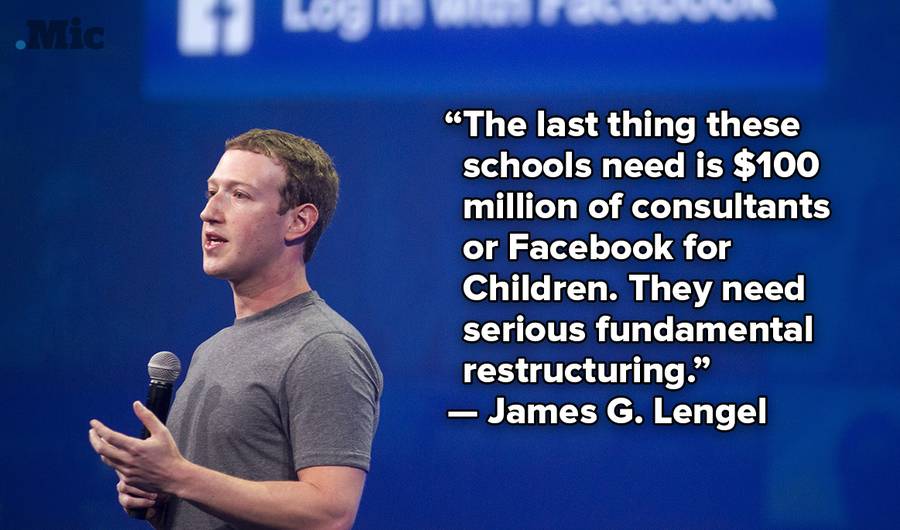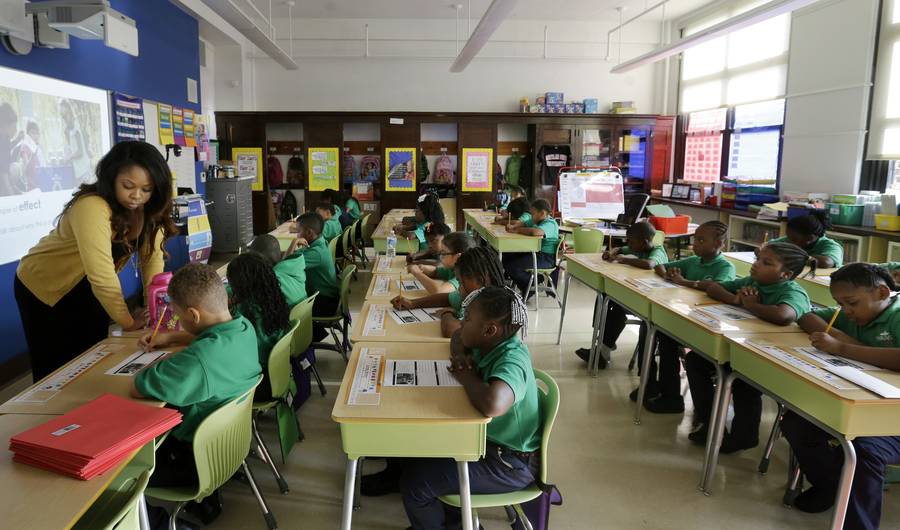Why Should We Trust Tech Billionaires Like Mark Zuckerberg With the Future of Education?

The "Pass the Mic" series showcases voices, perspectives and ideas that spark interesting conversations.
Steve Jobs, Bill Gates, Eric Schmidt, Rupert Murdoch, and now Mark Zuckerberg have all announced their solutions to what's wrong with public schools. And they all support companies that promise to fix these schools. They are clever folks who know how to program computers, market products, entertain, advertise and make money. But they don't necessarily know to educate effective and responsible citizens.
Why should we trust these rich Silicon Valley entrepreneurs to influence educational policy?
Tech titans like Mark Zuckerberg, who has pledged most of his fortune to advancements in science and education, realize, as many responsible educators do, that the schools of today are not serving their students or the society very well. Schools are stuck in a 19th-century paradigm that prepares young people for a simple industrial economy and a static political community that no longer exist. These men suspect, as many responsible educators do, that the kinds of technologies that made them rich could contribute to a new form of schooling that better fits today's students, today's economy and today's political community.
But the solutions they choose to promote and fund seldom work.
They treat public education as if it were just another commercial enterprise.
Witness the meager effects of Zuckerberg's $100 million gift to Newark schools, described in The Prize: Who's in Charge of America's Schools? by Dale Russakoff.
Witness, as we have in our visits to schools all over the world, the thousands of now-vacant school computer labs once funded by Microsoft and Gates.
Witness the failure of Murdoch's Amplify, which just wrote off half a billion dollars that was supposed to revolutionize education through personalized learning.
Witness the exposure of Google's education platform as a ruse to market information gleaned from students' profiles.
Witness the sad failure of online charter schools to serve their students.
Students at KIPP Thrive Academy, a charter school in Newark, New Jersey Source: Mel Evans/APWhy don't these initiatives work? For one, they fail to recognize why schools exist. They treat public education as if it were just another commercial enterprise. And they fail to listen to the folks who are truly interested in educating young people for effective citizenship.
That's what the public schools in the USA are supposed to do, and have done pretty well for the last two centuries: educate young people to be contributing workers, participating citizens and good neighbors. In some ways, these social purposes are exactly the opposite of the kinds of personalized learning that Zuckerberg and the others call for.
Where technology isolates, good schools socialize. Silicon Valley tells students, Technology will tell you how you learn best, where you need to focus and what to do next. But good schools tell their students, Caring adults will help you learn most effectively and ensure that you are headed in the right direction.
Schools' mission today is, more than ever, to counteract the selfish personalization made possible by new media and technologies. We don't need any more centripetal forces moving our young people into separate affinity groups or lonesome personal spaces. Since Google and Facebook make their millions by selling personalized entertainment and advertising, it's only Why Should We Trust Tech Billionaires Like Mark Zuckerberg With the Future of Education? - Yahoo News:

